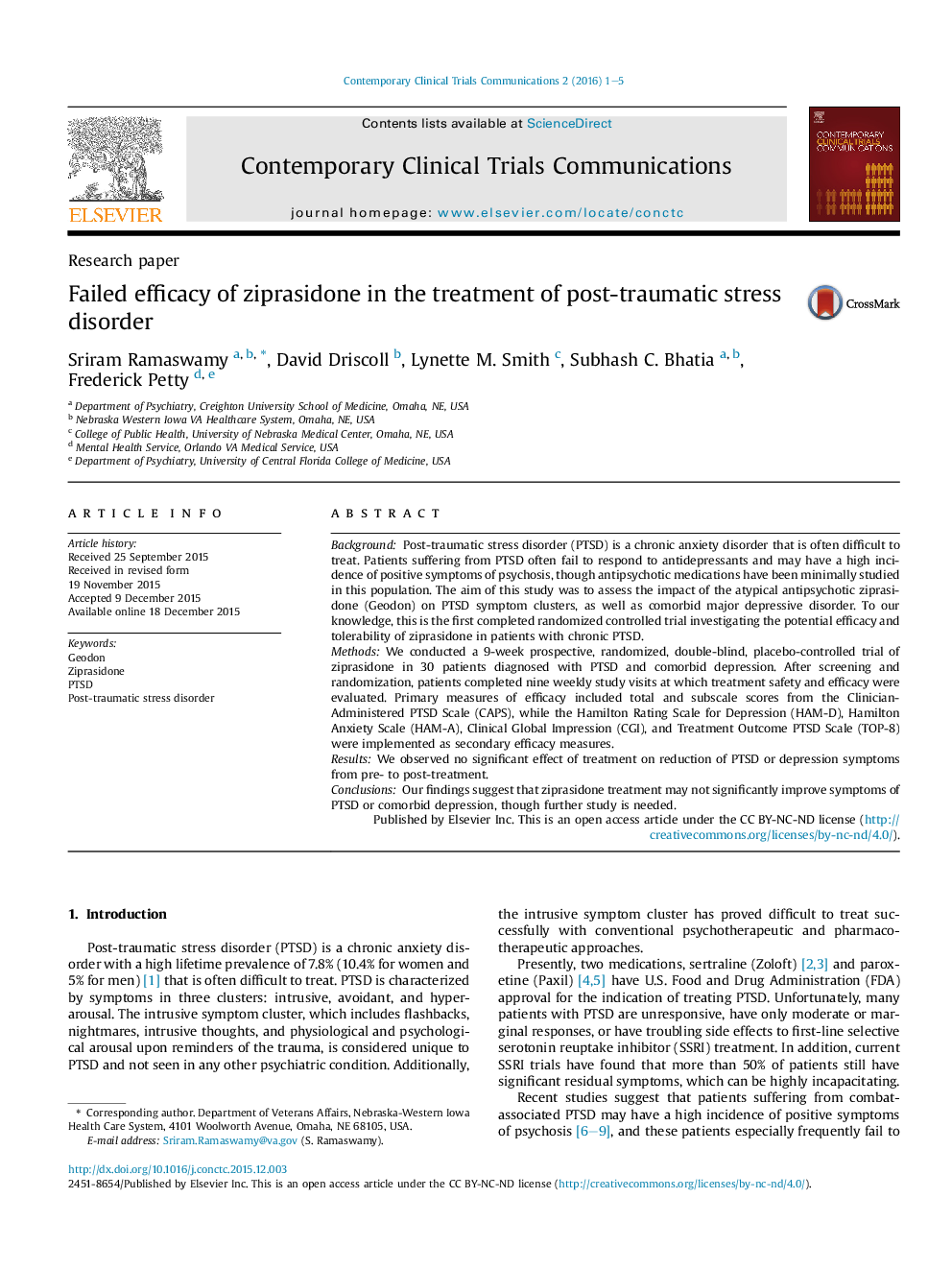| کد مقاله | کد نشریه | سال انتشار | مقاله انگلیسی | نسخه تمام متن |
|---|---|---|---|---|
| 2498715 | 1556795 | 2016 | 5 صفحه PDF | دانلود رایگان |
BackgroundPost-traumatic stress disorder (PTSD) is a chronic anxiety disorder that is often difficult to treat. Patients suffering from PTSD often fail to respond to antidepressants and may have a high incidence of positive symptoms of psychosis, though antipsychotic medications have been minimally studied in this population. The aim of this study was to assess the impact of the atypical antipsychotic ziprasidone (Geodon) on PTSD symptom clusters, as well as comorbid major depressive disorder. To our knowledge, this is the first completed randomized controlled trial investigating the potential efficacy and tolerability of ziprasidone in patients with chronic PTSD.MethodsWe conducted a 9-week prospective, randomized, double-blind, placebo-controlled trial of ziprasidone in 30 patients diagnosed with PTSD and comorbid depression. After screening and randomization, patients completed nine weekly study visits at which treatment safety and efficacy were evaluated. Primary measures of efficacy included total and subscale scores from the Clinician-Administered PTSD Scale (CAPS), while the Hamilton Rating Scale for Depression (HAM-D), Hamilton Anxiety Scale (HAM-A), Clinical Global Impression (CGI), and Treatment Outcome PTSD Scale (TOP-8) were implemented as secondary efficacy measures.ResultsWe observed no significant effect of treatment on reduction of PTSD or depression symptoms from pre- to post-treatment.ConclusionsOur findings suggest that ziprasidone treatment may not significantly improve symptoms of PTSD or comorbid depression, though further study is needed.
Journal: Contemporary Clinical Trials Communications - Volume 2, 15 April 2016, Pages 1–5
